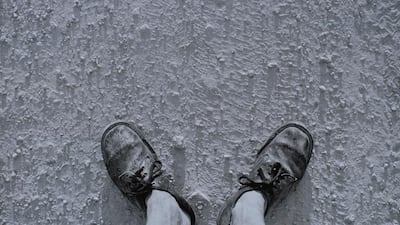Kidnapped and then held prisoner by a rival methamphetamine pusher at the beginning of season two of the hugely popular TV show Breaking Bad, Walter White can think of no explanation that will satisfactorily account for his unanticipated disappearance from the family home apart from faking a fugue state. Given the show's meticulous plotting, one can almost hear the writers' chuckles at their nod to a storyline that's become something of a "get out of jail free" card for dead-end plots in melodramatic soap operas. Interestingly, of course, the fugue state exactly mirrors that which these plots are lacking – a coherent and cohesive story.
The American author Maud Casey's new novel The Man Who Walked Away [Amazon.com; Amazon.co.uk] is inspired by the original Fugueur: the real life case history of one Albert Dadas, a 19th-century Frenchman whose dromomania, or "travelling fugue", was written up by Philippe Tissié, a Bordeaux-based doctor of early psychiatry.
Through Germany and Austria-Hungary and the Balkans – even, he claims, as far as Constantinople – Casey’s Albert has walked the length and breadth of Europe. “For this man, it appears travel is a broken shard that has lodged inside of him, causing him not to be so much consumed by an obsession to pursue travel as consumed by travel itself.”
He’s no leisurely, all-observing flâneur, however, but rather a man compelled, without destination, purpose or recollection to walk in an almost trance-like reverie. “Travel,” we’re reminded, “from travail, bodily or mental labour or toil of a painful, oppressive nature. From the Old French travail, suffering or trouble.”
The Doctor (the fictionalised Tissié) who comes to his rescue is a man who’s dedicated his life to his patients’ “poignant effort to make visible to others their vision of reality”. He understands the “complexity” of this “nearly impossible translation”, and knows he needs to listen to and “past the words” his charges tell him, but the footsore addition to his flock is a transfixing new conundrum – a man whose life is marked by absences and desertion: “The problem is not that Albert’s story of his life is happy or unhappy, it is that it is invisible to him” – his mind is a “dark street” in which the Doctor’s task is the lighting of elucidating lamps, one by one.
We glimpse the violent world of hysteria through the lectures the Doctor attends given by “the great doctor” – one assumes a figure based on Jean-Martin Charcot of Paris’s Salpêtrière Hospital, the “Napoleon of the neuroses” under whom Freud himself studied – in which he parades his “statues of living pain”, women who pulsate with tics or droop with paralysis and beg to be bound tightly in straitjackets, but there is a keen separation between Charcot’s public theatre and the idyllic refuge away from prying eyes and pointing fingers that the Doctor provides for his patients.
He’s a gentle and nurturing figure, coaxing and soothing his patients’ stories out of them; a man in many ways as delicate as those he treats, and with a past that hides its own traumas. This softly, softly approach perfectly fits the sophistication of Casey’s prose, consuming one completely and without question while one reads, but thinking about it after I turned the final page, I was struck by how modern the physician’s bedside manner is and how strikingly his asylum bears none of the trademark horrors of a Victorian madhouse – his patients are troubled but on the whole placid souls who take daily constitutionals en masse to paddle in a bubbling brook and tend the vegetable garden, attended all the while by the angelic Nurse Anne.
Fugue means flight, derived from the Latin fuga, “an odd combination of fugere, to flee, and fugare, to chase” – and implicit here is a particular kind of delicacy, a sense of that which is fleeting and ephemeral; something, like the Doctor’s sanctuary, that’s not quite of this world.
Rendered in luxuriously poetic prose – the asylum as a vase, the equilibrium of its contents upset by the new arrival, “everyone is sloshing over its edges”, or a conversation that feels “like a loose sock slipping down his leg after he has just finished pulling it back up” – Casey has constructed a rich and evocative narrative that fittingly resonates with this sense of transience while at the same time giving shape and form to a story based on absence.
Lucy Scholes is a regular contributor to The National.

